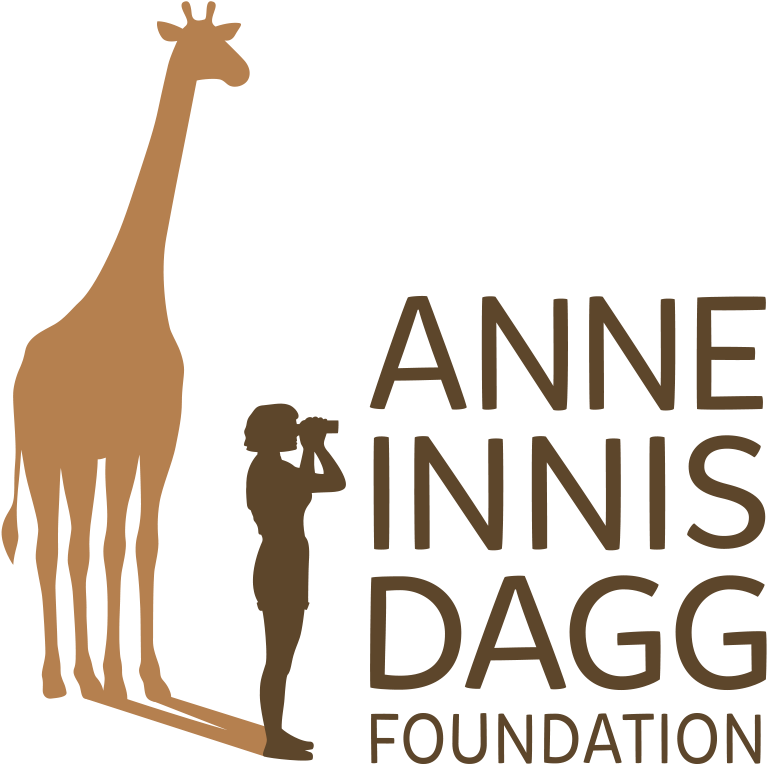
Anne Innis Dagg
In 1956, before anyone, man or woman had made such a trip, 23-year-old Canadian biologist, Anne Innis Dagg, made an unprecedented solo journey to South Africa to become the first western researcher to study giraffes in the wild. When she returned home a year later armed with ground-breaking research, the insurmountable barriers she faced as a female scientist proved much harder to overcome.
In 1972, having published 20 research papers as an assistant professor of zoology at University of Guelph, the Dean of the university, denied her tenure, preventing her from holding a permanent position there. She couldn’t apply to the University of Waterloo because the Dean there told Anne that he would never give tenure to a married woman. These refusals were a critical blow to her career and the catalyst that transformed Anne into a feminist activist.
For three decades, Anne Innis Dagg was absent from the giraffe world until 2010 when she was sought out by giraffologists and not just brought back into the fold, but finally celebrated for her work. While toting her memoir recounting her seminal journey, Pursuing Giraffe: A 1950s Adventure, Anne caught the attention of filmmaker Alison Reid which resulted in the award-winning feature documentary The Woman Who Loves Giraffes.
The subsequent publicity surrounding the film and Anne’s books boosted her notoriety to a global level. Anne Innis Dagg officially received apologies from the academic institutions that once shunned her along with numerous Honorary Doctorates. In 2019 the University of Guelph established the Dr. Anne Innis Dagg Summer Research Scholarship awarded annually to one female undergraduate student majoring in either Zoology or Biodiversity. In 2020 the Governor General of Canada awarded Anne with the nation’s highly coveted designation of merit, the Order of Canada. Anne continued to write books, contribute to research and be an active member of her community in Waterloo, Canada until her passing on April 1st, 2024.
